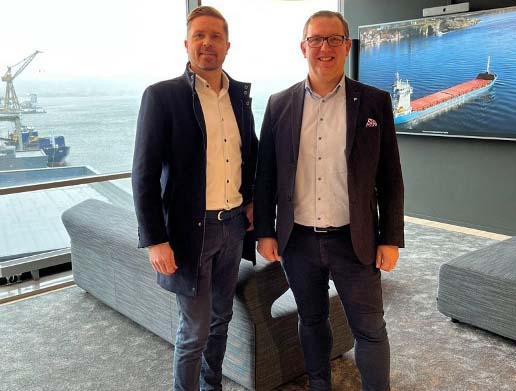Seaber.io, the Finnish maritime technology company, has announced a cooperation with Norway-based Wilson EuroCarriers, in which Seaber’s innovative technology will enable the digitalisation of Wilson’s fleet scheduling, helping to improve efficiency as well as reducing costs and emissions.
Seaber considers it is uniquely positioned to digitally transform the shipping industry with an intelligent technology solution for data-led decision support. The solution optimises fleet scheduling and maximises TCE, improving profitability and bringing down the environmental impact of shipping. In addition to single cargo voyages, Seaber supports multi-parcel and multi-port voyages, where unnecessary ballast voyages and low utilisation rates are common. The technology, based on a modern tech stack, integrates seamlessly with existing software solutions such as ERPs and Voyage management systems. Wilson welcomes the cooperation. The company’s goal is to be a more efficient choice for cargo owners.
Jostein Bjørgo, Commercial Director, Wilson, said: “Our aim is to move cargo safely, on time, and maximise efficiency and sustainability of European sea transport. We were looking for software solutions that could support our mission and believe that Seaber is the best tool to help us further digitalise our operations. It is important for us to improve collaboration and the service we provide to our customers. This is a pioneer project and we expect to set a new standard for how the entire industry manages scheduling in the future.”
The web-based application is designed for both shipowners and cargo owners, allowing them to maximise efficiencies in schedule planning and communications. With Seaber, stakeholders can collaborate in this dynamic industry in real time, with each maintaining total control of the information being shared.
Sebastian Sjöberg, CEO and Co-founder of Seaber said: “Seaber integrates with existing technologies used by Wilson and makes the planners’ work easier and more efficient. Replacing spreadsheets means less planning mistakes with improved data ergonomics, data integration and automation. This ultimately leads to reduced costs and emissions via better utilisation of the fleet. It’s great to see Wilson taking this step, so they are better positioned when industry changes happen and new regulations emerge.”



